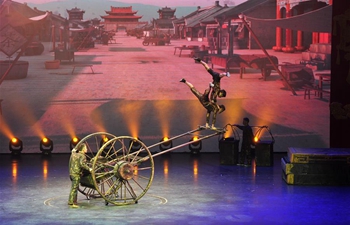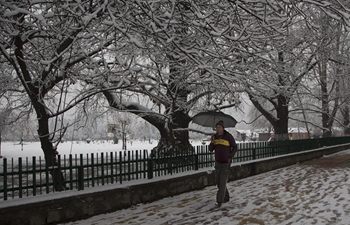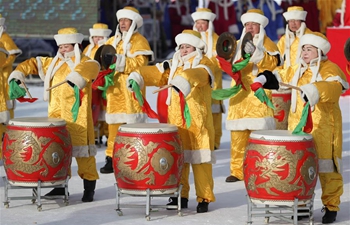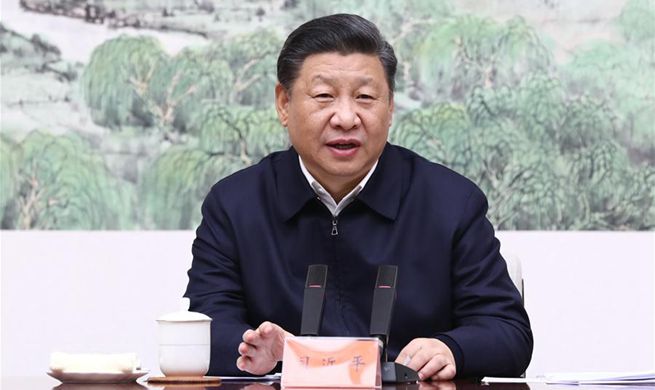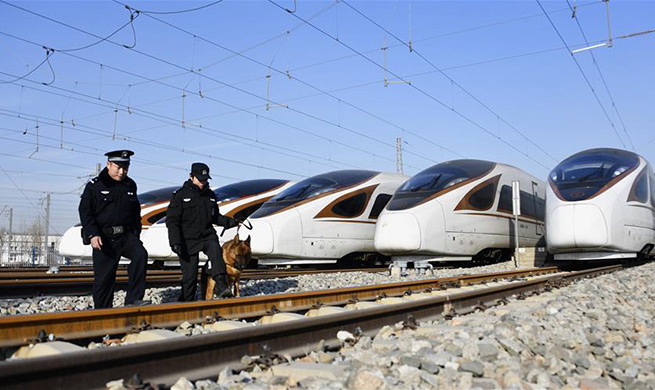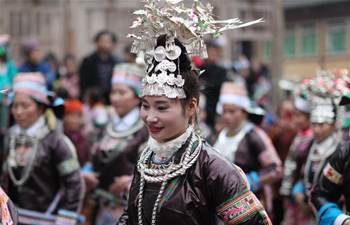BEIJING, Jan. 19 (Xinhua) -- As China faces a low fertility rate and an aging population, what can be done by the government and the civil society to encourage child birth?
Dr. Babatunde Ahonsi, the United Nations Population Fund (UNFPA) China Representative, said at a policy dialogue in Beijing that the solution was more than simply encouraging couples to have more children.
"It needs to be accompanied by well-designed and comprehensive policy responses to support all couples and individuals to make fertility decisions of their own," Ahonsi said.
According to figures released by the National Health Commission (NHC), a total of 17.58 million new babies were born in Chinese hospitals in 2017. The figure for 2016 stood at 18.5 million.
Han Junli, an official of population monitoring and family development at NHC, said China would work on improving daycare services for children under three years and build more daycare centers with participation from society.
"We will also see that women's legitimate rights such as employment are guaranteed," she said, adding that employers who were found to discriminate against pregnant women would be "severely punished."
Anne-Mari Virolainen, minister of foreign trade and development of Finland, said at the event that it was important to make having children economically viable for educated and ambitious young adults.
Finland is known for its child-friendly social welfare system, including quality maternal and childcare services and free school meals.
Feng Yuan, co-founder of Beijing Equality, a non-governmental organization dedicated to promoting gender equality, said family members, particularly fathers, should also be encouraged to better help with childcare.
"Traditional Chinese culture believes childcare is the responsibility of women, but in modern times many working women find it very hard to balance work and family," she said, calling for more concrete measures to help achieve real gender equality.
China is home to about 240 million people aged 60 or above. In response to the aging problem, China allowed married couples to have up to two children from 2016, ending its decades-long one-child policy.
The China Family Planning Association said last month it will continue providing guidance on reproductive health and childbirth, helping raise public willingness to have children, and resolving childcare difficulties.
Wang Peian, deputy head of the association, said the association would explore more services in childcare and early child development for children aged under three years in 2019.
A total of 28 cities in China established guidance centers for childbirth in 2018, to provide standard and convenient services for young couples and growth trainings for children under three years.
In 2019, the association will help set up more guidance centers and online information platforms for marriage and pregnancy check-ups.
In addition, Chinese parents can now also enjoy tax benefits. From Jan. 1, 2019, a couple can enjoy a deduction of 1,000 yuan (about 148 U.S. dollars) per month from their taxable incomes for each child receiving education from kindergarten all the way to doctoral studies.




